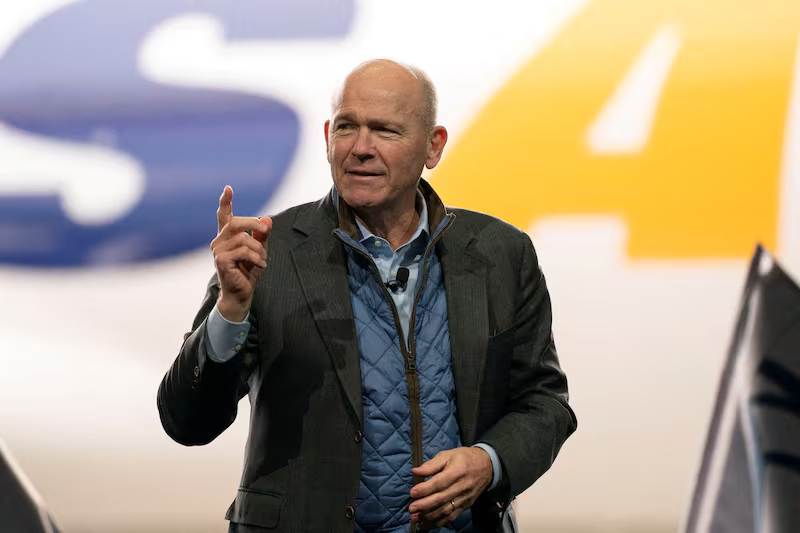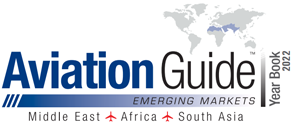Persistent production problems and accompanying public relations crises have prompted a management shakeup that will see Dave Calhoun “step down” from his position as Boeing Company CEO at the end of the year and the immediate retirement of Stan Deal from his role as head of Boeing Commercial Airplanes.
Boeing Company COO (and former president and CEO of Boeing Global Services) Stephanie Pope assumes Deal’s position, effective immediately. The moves come as board chairman Larry Kellner opts not to stand for re-election. The board has elected Steve Mollenkopf to replace Kellner and begin the search for a new CEO.
Mollenkopf, who has served on the board of directors since 2020, previously led Qualcomm as its chief executive. Pope has served as COO of Boeing since January. She previously served as CFO of Boeing Commercial Airplanes.
Calhoun addressed Boeing’s difficulties in a letter to employees. “It has been the greatest privilege of my life to serve Boeing,” said Calhoun. “The eyes of the world are on us, and I know that we will come through this moment a better company. We will remain squarely focused on completing the work we have done together to return our company to stability after the extraordinary challenges of the past five years, with safety and quality at the forefront of everything that we do.”
Boeing has suffered through a spate of problems with its airplanes even before Calhoun took over as CEO from Dennis Muilenburg in January 2020, following two fatal crashes of the 737 Max 8 in 2018 and 2019 that killed 346 people. Most recently, Calhoun oversaw quality control efforts related to January’s incident in which a door plug blew out of the side of an Alaska Airlines 737 Max 9.
In February, FAA Administrator Mike Whitaker gave Boeing’s senior leaders 90 days to develop a “comprehensive action plan” to address its systemic quality-control deficiencies. Whitaker told Boeing that he expected the company to provide the FAA a “comprehensive action plan” that would incorporate the results of the agency’s production-line audit and the latest findings from the expert review panel report, as required by the Aircraft Certification, Safety, and Accountability Act of 2020. Whitaker made the remarks during an all-day safety discussion at FAA headquarters in Washington, D.C.
“Boeing must take a fresh look at every aspect of their quality-control process and ensure that safety is the company’s guiding principle,” concluded Whitaker.
In a review of the employment culture at the company, an expert panel found what it called gaps in Boeing’s safety journey and that a majority of employees did not show “skillful awareness” of the concepts of just culture and reporting culture.
The panel further reported that it could not find a “consistent and clear” safety reporting channel or process within the business unit. It also noted that employees do not understand how and when to use the different reporting systems. Further, the panel expressed concern that the confusion might discourage employees from reporting what they see as safety problems.
Management Overhaul at Boeing Sees CEO Dave Calhoun Step Down, Stan Deal Retire










